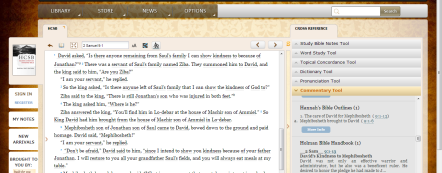Neither does your Sunday School class.
They need you. More precisely, they need Jesus as His strength is revealed to them through your weaknesses.
The reality is that you teach a small group full of people who struggle. No matter how much pressure you and I (as church leaders) place on ourselves to be super human, super spiritual, or super anything…that’s not what the world needs from us. The world (and especially the small groups we lead) need us to be authentic, honest, and real.
The Bible promises that where we are weak, God is strong. In our weakness, His strength is perfectly sufficient. It doesn’t bless the people we serve to make them think that you and I have our act together. It blesses them to see that we don’t, but that Jesus loves us, has purposes for us, and redeems us anyway.
Consider the following words from Rick Warren, as he shared about one of his long time weaknesses:
One of the things I’ve figured out is that God has used this to build a praying church at Saddleback. I wouldn’t think of preaching without having my prayer team praying for me during the message. And they pray for me during each service through the entire service. What’s the lesson? God uses weak people! Paul had a handicap and he said, “I glory in my weakness.” It is an absolute myth that you must be a super human being to be effective in ministry. The goal is to last. What kind of ministries last? Ones that are real and authentic and vulnerable and honest and non-hypocritical about our weaknesses.
I believe that there are two great pillars of ministry. Paul’s confession and Peter’s confession. These are the two great pillars of ministry. Peter’s confession was, “You are the Christ, the Son of the Living God.” Obviously, ministry is built on that one, which is found in Mark chapter 8. But Acts 14:15 is just as important, which is Paul’s confession at Iconium where he says, “We are but men.”
I have met many pastors who are very interested in declaring their spirituality. But I haven’t met too many pastors in my life who are interested in declaring their humanity. But your humanity is actually one of your greatest strengths.
God loves to use weak people to work his life through and work His work through. Why? 1 Corinthians 1:27 says, “God purposely chose what the world considers nonsense in order to put the wise men to shame. And what the world considers weak in order to put powerful men to shame. He receives glory.” God puts His greatest gifts in ordinary containers so that He alone gets the credit.
You can read the entirety of his comments here.
So my encouragement for you today is not to worry about being super spiritual, or super human in front of your small group. Be honest, real, and sincere. Give God the glory for doing the things only He can do.
I leave you with this wonderful word from Jesus about his expectations of us:
Matthew 11:28-30
The Message (MSG)
“Are you tired? Worn out? Burned out on religion? Come to me. Get away with me and you’ll recover your life. I’ll show you how to take a real rest. Walk with me and work with me—watch how I do it. Learn the unforced rhythms of grace. I won’t lay anything heavy or ill-fitting on you. Keep company with me and you’ll learn to live freely and lightly.”








